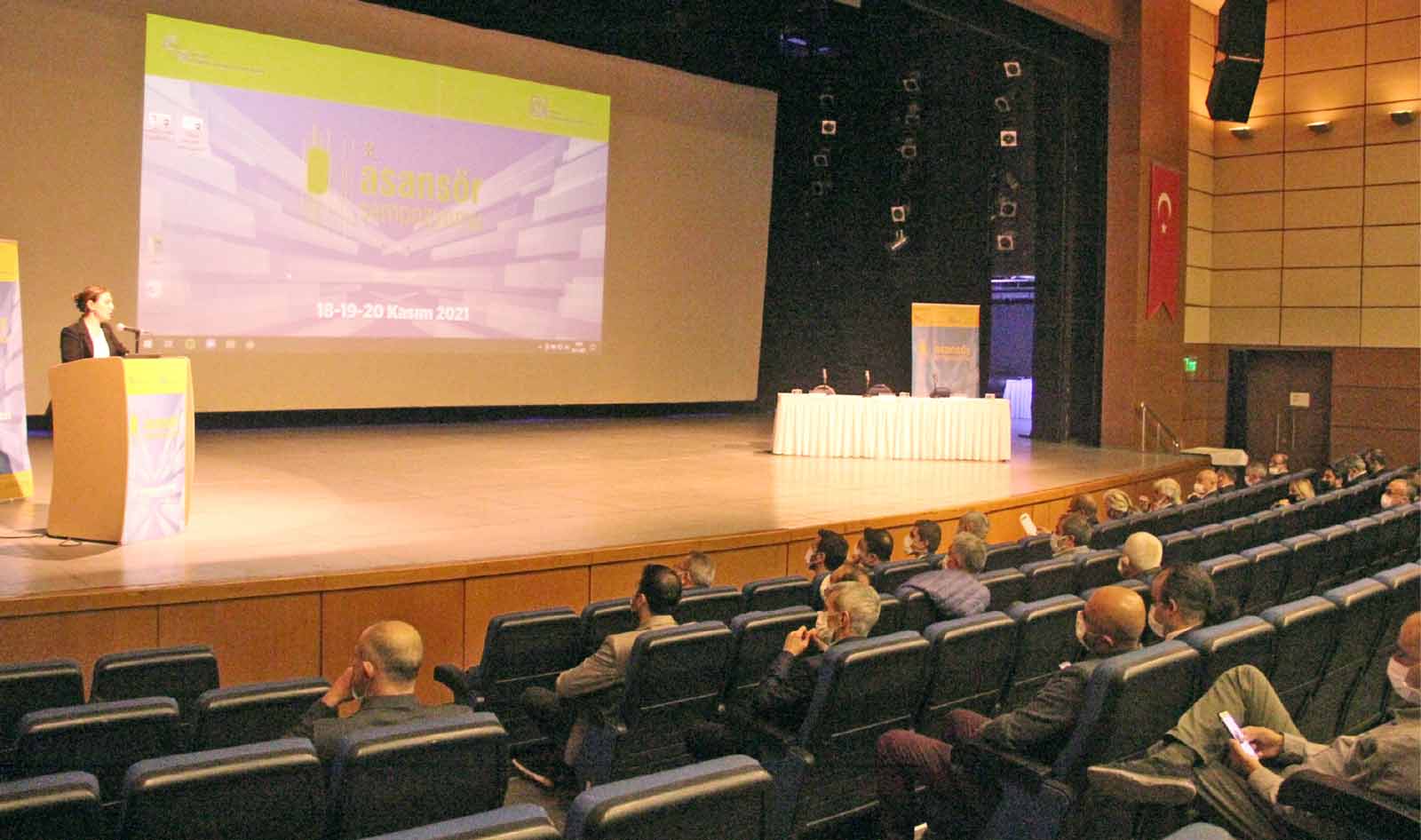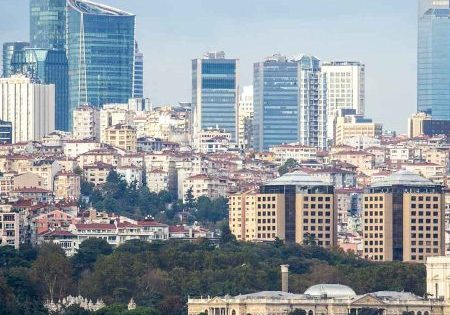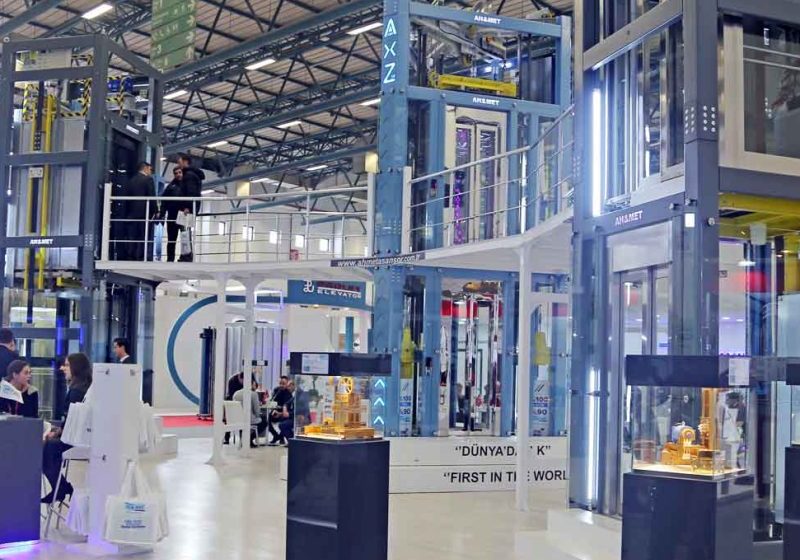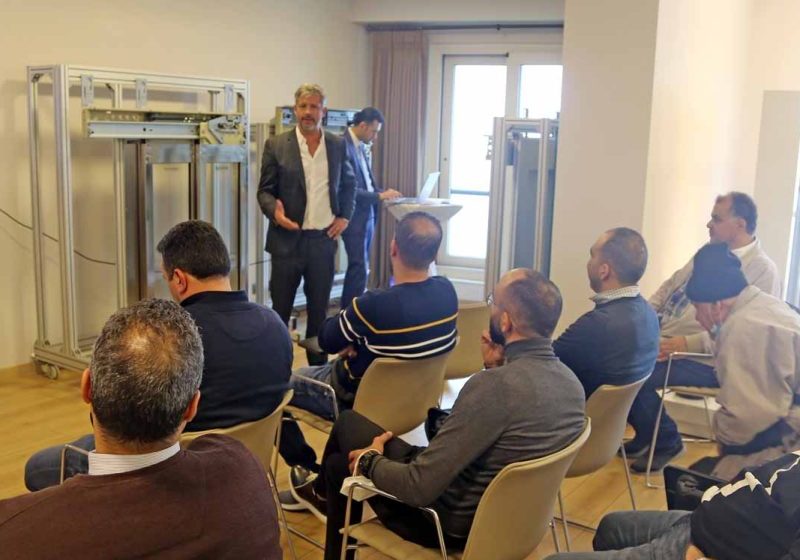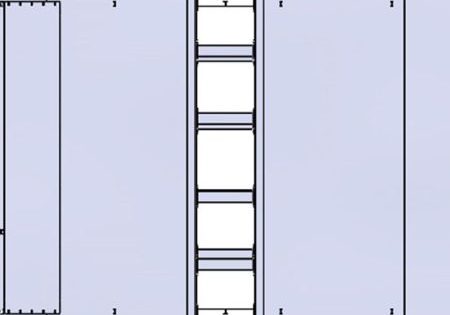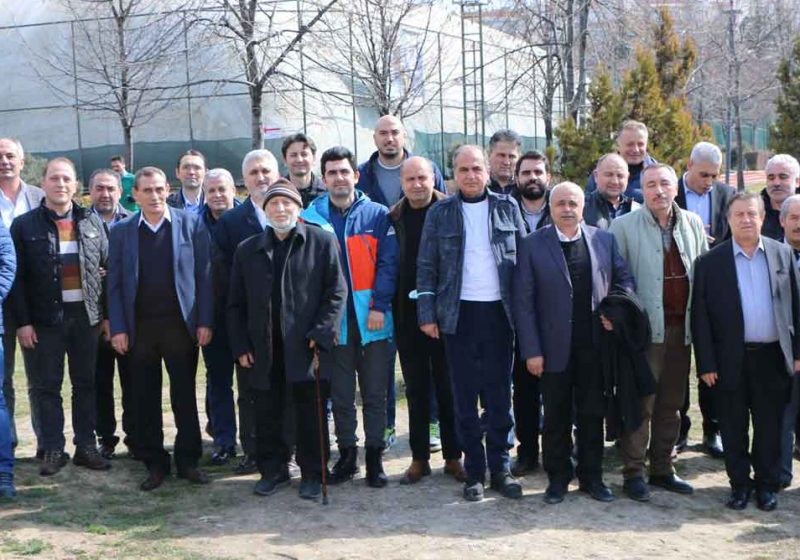The final declaration of the Elevator Symposium 2021, organized by the Izmir branches on behalf of TMMOB Chamber of Mechanical Engineers and Chamber of Electrical Engineers in Izmir on November 18-20, 2021, has been published.
The event, where the papers and presentations were live-streamed via Zoom and YouTube and the opening session and panels were held in-person at Izmir Tepekule Congress Center/Anatolia Hall, was attended by approximately 800 people. It is observed that the number of views were 3,676 as of March 1, 2022, and it still increases.
At the end of the event, which hosted seven sessions with 14 papers, the following topics were decided to be presented to the public:
1. Engineers who have theoretical and practical knowledge on elevator design, planning, installation, revision, maintenance and periodic control, material, risk assessment, occupational safety, energy efficiency, legislation and relevant standards are in demand by the industry and elevators come under electrical, mechanical and mechatronics engineering as elevator design, planning, installation, commissioning, maintenance and periodic controls, are all engineering services, and the relevant Chambers should develop and continue training and certification activities for their colleagues within this process, and it should be placed in the legislation immediately.
2. Within the frame of their charters and with the aim of improving the quality of production and inspection services officially and for the public weal, professional chambers should remove all the obstacles and limitations placed by the local and central political powers to the inspection activities, and “expertise and certification” are the essentials of inspection.
3. The sector needs qualified intermediate staff, and due to the lack of an education policy in our country on training technical staff, vocational schools and vocational high schools cannot train qualified intermediate staff that the industry needs. The most important task falls on the Ministry of National Education while the universities, schools which train intermediate technical staff, professional chambers and elevator sector associations, which also have important duties.
4. Frequently, there are deficiencies in the planning and construction of buildings in terms of installing safe and comfortable elevators, so the issues related to installation of an elevator should be addressed at the design phase of the building. Responsibilities for preparing and implementing the preliminary design and implementation, as well as architectural and static projects of the elevators, should be defined and legislative steps should be taken for placing sanctions. At this point, it should be clearly specified in the legislation that the constructors and building inspection bodies should be given concrete responsibilities and the Trade Associations should take an active role in the process.
5. According to the data revealed by the Ministry of Industry and Technology, during the first periodic controls prior to registration, 26,913 elevators have been inspected by Type A inspection bodies until November 2021. Upon the examination of the data, 65% of the elevators that passed the conformity assessment process were found ineligible. Therefore, in order to improve the process, notified bodies, installers and safety component manufacturers should be inspected within the scope of the Product Safety Law No. 7223.
6. Periodic elevator controls should be checked in terms of their compliance with the technical regulation.
7. Modular implementations are not carried out accurately by the notified bodies; a product which does not pass the first periodic inspection prior to registration gets approval for Module G certification. Module B is not an elevator design review, but a final control form now, while Module B+E were also problematic and became a simple certificate and a construction project, instead of an elevator design and inspection, and safety requirements, calculations, resistance and other solutions are not pursued.
8. Although we are one of the countries with the highest number of notified bodies and inspection bodies, the same increase is not seen in elevator installation and product quality because it was observed that many certified products were out of order. Having so many inappropriate but certified products in the market creates problems in terms of system reliability and the existing operation in our country. Therefore, necessary action should be taken immediately, and coordination between notified bodies should be ensured.
9. There are some serious doubts if risk analyzes fully meet essential health and safety requirements. The application methods, and application results and field test results obtained by the notified bodies and inspection companies should be tracked, and these results should be used by the Ministry and TÜRKAK for inspections of companies (manufacturer, installer, certifier and controller).
10. According to the data published by the Ministry of Industry and Technology, 574,684 elevators were inspected until November 2021, and 45.45% labels were recorded red, 8.22% were yellow, 35.24% were blue and 13.09% green labels were given while these figures changed in follow-ups. Safety levels of the elevators improve day to day, thanks to inspection and improvement activities. However, it is confusing that an elevator gets a red label after receiving a green label in the previous year. Therefore, the Ministry should continue and expand its inspections for authorized installers and maintenance companies.
11. Within the scope of the Elevator Periodic Control Directive, the public should be informed in order to carry out the periodical controls carried out by the Type-A inspection bodies in a healthy and efficient manner, and the Ministry of Industry and Technology, trade associations and chambers should work in collaboration.
12. During inspection, conformity assessment and manufacturing of the elevators, technical issues should be prioritized instead of financial issues; otherwise, such activities may not be successful.
13. Within the scope of the Elevator Periodic Control Directive, safety components installed on the elevators were identified during the controls carried out by the Type-A inspection bodies, and the data were transferred to the Elevator Follow-Up System established by the Ministry. Safety component tests are now carried out by an accredited laboratory that signed a protocol with the Ministry, samples from 26 products were taken until November 2021, 13 of them were assessed and eight of them were found inappropriate while tests and inspections still continue. Tests and inspections within market surveillance and inspection activities of safety components should always be carried out by accredited laboratories, and coordination should be ensured between the laboratories.
14. Load tests that are recently carried out in line with the Elevator Periodic Control Directive are very important and is a requirement but not carried out accurately within the scope of technical regulation.
15. Considering the international practices in high-rise buildings, the number of emergency elevators should be reviewed based on the height, width and type of the building as well as their capacity, and the national legislation should be updated accordingly.
16. As the residential districts, where the majority of the population in our country lives, are seismic zones; the elevators should be inspected in terms of earthquake resistance, and new elevators should be manufactured and installed accordingly, and international standards should be considered.
17. As elevators are the essential requirement for the people with disabilities and movement restrictions, elevators should have the necessary equipment for the people with different disabilities. As there is no disability class specific to Turkey, international standards should be applied and Planned Zoning Regulation and other national legislation should be reviewed accordingly.
18. Effective coordination platforms are needed in order to solve the problems experienced in manufacturing, maintenance, market surveillance and inspection and periodical controls in accordance with the directives and standards for elevators. Therefore, relevant institutions and organizations (Ministry of Industry and Technology, Ministry of Environment, Urbanization and Climate Change, Ministry of Labor and Social Security, authorized bodies for licensing, notified bodies, Type A inspection bodies, installers and maintenance companies, building managers, industrial associations and chambers) should prioritize information sharing and work in collaboration.
19. Considering that Turkey is near the top of the list in Europe and the whole world in terms of occupational accidents and at the top of the list in Europe in terms of fatal occupational accidents, crucial tasks fall on employers and employees, Ministry of Labor and Social Services and other relevant ministries, employers’ organizations, unions, written and visual media, trade associations and industrial associations.
Get more of Elevator World. Sign up for our free e-newsletter.
